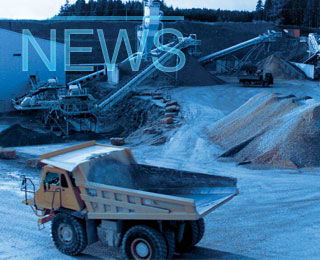South African cement supplier Holcim said it is committed to free enterprise and welcomes competition in Namibia, which, the company said has always been to the benefit of consumers. In a statement, Holcim argued that by offering its traditional Namibian customers a discounted price to match the offer being made by the new competitor, the firm is only defending its marketing position.
"Recently, another Namibian enterprise has started to import cement from Brazil for supply to the local market. The competitor entered with a reduced price (and) as a result, Holcim Namibia has lost some market share to the new entrant," it stated.
The company said this "price war" - which it said was an everyday occurrence in a free market economy - is proving to be very expensive to both suppliers and is not a sustainable situation. It said the company accepts the Ministry of Trade and Industry’s position of supporting Cheetah Cement on the basis the new entrant will build a factory.
Holcim itself has been looking at the possibility of building a cement manufacturing plant in Namibia but its recent feasibility study indicated that the current market volume of 275,000t annually does not justify the N$700 million capital cost of erecting a modern plant, the statement said. Holcim said the high capital cost of the plant is required to ensure safe working conditions for employees and to minimize a potential negative impact on the environment.
"In the absence of an established plant by either of the current suppliers in Namibia, the situation remains that two Namibian companies are importing cement: one from Brazil and the other from a neighbouring SADC country," Holcim indicated.
As the price war between Cheetah Cement, a new player on the market and its South African competitors rages on, the benefits of the price crash have not yet reached Namibia’s far-flung settlements in rural areas.For example, in Katima, Mulilo Holcim Cement is still being sold at N$58 while Cheetah fetches N$56. The same appears to be the case at Karasburg and Gobabis, where cement prices are still pegged between N$45 and N$60 respectively.
Cement prices have over the past two months plummeted to record levels, falling by as much as 50 percent from a record high of N$60 a bag to about N$30. It emerged in recent weeks that the price chop is aimed at squeezing out Cheetah Cement, a new entrant into the industry. South African cement suppliers and local distributors are reported to have conspired to drive out Cheetah Cement to maintain their monopoly in Namibia. New Era investigations revealed that the suppliers have offered local distributors an N$5 a bag rebate to stop them from selling Cheetah Cement.
